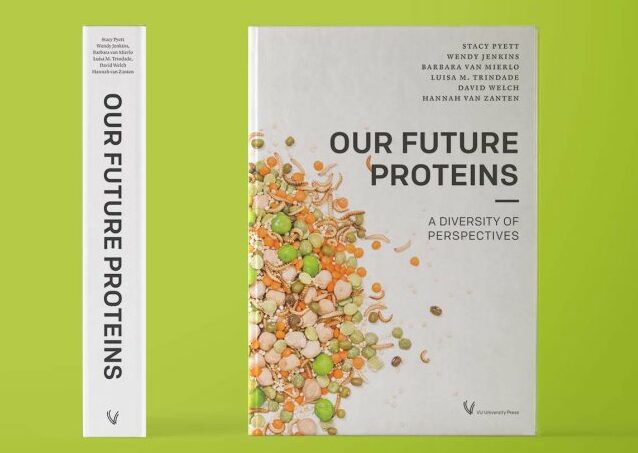Having farmers grow pulses rich in protein on a large scale and getting consumers to double the amount of plant-based protein they eat is feasible within six years. This conclusion was reached by the Ministry of Agriculture, Nature and Food Quality, WUR and various other partners in the plan for an Economically-Powered Protein Transition through Innovation in Chains (EPPIC). The consultancy Deloitte calculated that if implemented, the plan would generate 2.6 billion euros in economic activity. The plan has been submitted for financial support worth 96 million euros from the National Growth Fund.
Anyone interested in learning more about the protein transition can read the book Our Future Proteins, which came out in March. It contains diverse views on the future production and consumption of sustainable proteins. In this book, 100+ experts present their views on the transition to sustainable protein production and consumption. Their visions cover a wide range of transition directions, from radically rethinking protein production systems to a pragmatic approach balancing global and local supply chains. By allowing a diversity of (sometimes divergent) perspectives, the book provides a snapshot of a dynamic transition in progress.
Order or download the book 'Our Future Proteins' here




